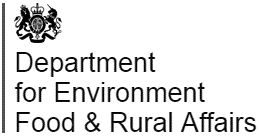Calculating your carbon
footprint is the first step on
your journey to net zero
Carbon footprinting
Calculating the carbon footprint of your business is the first step on your journey to Net Zero. We will work with you to measure your carbon footprint to establish a baseline that enables you to identify your biggest sources of greenhouse gas emissions (GHG), across all areas of your business.
Your carbon footprint should be reviewed annually. Our straightforward carbon footprint reports help your business monitor its progress and help develop a carbon reduction plan to reduce and offset unavoidable emissions.

Emissions
GHG emissions are categorised into three ‘Scopes’ that are based on the emissions your business creates. We utilise all three Scopes when measuring a carbon footprint, to allow your business to focus on achieving the most meaningful reductions, not only from within your operations, but across values chains.
Scope 1 Emissions are direct emissions from owned or controlled sources.
Scope 2 Emissions are indirect emissions from the generation of purchased energy.
Scope 3 Emissions are all other indirect emissions that occur in the value chain of the company, including both upstream and downstream emissions.
Calculation standards
The Greenhouse Gas Protocol Corporate Reporting and Accounting Standard and the Department for Environment, Food and Rural Affairs (DEFRA) annual UK Government Conversion Factors for Greenhouse Gas (GHG) Reporting, are the most widely used and globally recognised standards, which we have adopted for measuring and reporting carbon footprints for businesses in the UK.



Certification
We will award your business with a Carbon Management Certification that recognises your businesses carbon footprint has been measured and reported in line with The Greenhouse Gas Protocol Corporate Accounting and Reporting Standard and the UK Government Conversion Factors allowing your business to set science-based targets for a zero carbon future.
This certificate demonstrates your business’ commitment to reducing your carbon footprint by 2050, at the latest, strengthens your Environmental, Social and Governance (ESG), enhances stake holder information and corporate reputation.
